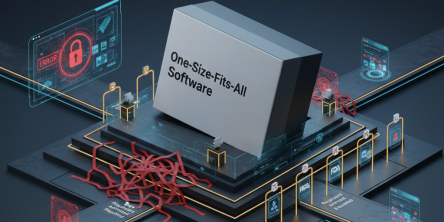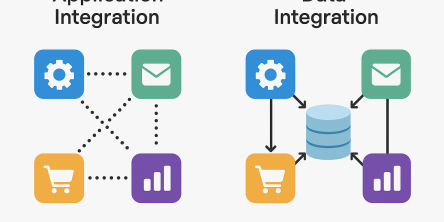Top Ways in Which EHR Systems Enable Better Patient Care

The Electronic Health Records system offers benefits that have enabled an industry as tricky as healthcare. The software allows medical professionals and other professionals across the ecosystem to quickly input as well as access information about a patient. Since this data is recorded and stored in centralized databases, it also becomes easier to maintain extensive records of the patient’s medical history. Such comprehensive data then goes a long way in ensuring they receive relevant and substantially improved medical care that is based on their unique history, requirements, allergies, and more. That alone contributes significantly to ensuring patients receive top-notch care, even if they switch to a different medical facility.
Given the extensive nature of data collected and stored for patients, the value to be gained from healthcare EHR systems is both massive as well as invaluable. And even in the face of inadequacies, EHR systems have quickly evolved to address the healthcare industry and patients’ requirements — often by leveraging the latest technologies available in the market. As a result, its abilities and contributions have grown immensely as well. For example, in case of an emergency, the modern crop of EHR systems can automatically fill in the medical professional with all the relevant data to help them better tend to the patient in front of them. These are, of course, only some of the many, many benefits EHR systems have to offer. Let us take a look at some of the other compelling ways in which they help improve patient care.
- Better engagement: EHR systems today come equipped with a plethora of functionality to automate some essential functions in a healthcare business. Take appointment confirmation, for example. The systems now, driven by advanced technologies like artificial intelligence, can understand primary responses to text messages. This ability is highly valuable in ensuring that patients stay engaged as well as informed about their scheduled appointments or even the availability of dates, lest they feel the need for one.
- Technology-driven appointment scheduling process: Appointment scheduling isn’t nearly as simple as some people may make it out to be. It needs extensive knowledge of the facility’s operations, doctors’ availability, and more. Thankfully, EHR systems can now help with that via smart appointment scheduling. Besides the essential functions, it can also help fill up available appointment slots by, say, informing the next patient in the queue in case another patient cancels.
- Cut down the scope of errors in medical care: Of course, there is always the scope for error in any given thing. Unfortunately, the risk associated with the error in healthcare is rather grave. In the US alone, up to 98,000 deaths are attributed to medical errors every year. The scope for some of these errors can be reduced with EHR systems. How? Because of the extensive nature of data for every patient stored within them and because they help reduce the scope of error within the data and the risk of loss.
- Enhanced care experience: EHR systems are highly conducive to simplified and accelerated processes across the entire healthcare facility. Case in point: Intake and admission processes. When done manually, such methods can seem nearly endless since they generally involve endless back and forth as relevant information about patients, their medical history, insurance, and more are collected in the individual hospital’s system. However, with EHR, this process is simplified for the first time and unnecessary after that — even if you switch to a different facility.
It is clear that modern-day EHR systems have much to offer, from substantially better processes to top-notch patient care experiences. Any healthcare company that takes a custom EHR software development will also stand to gain immensely in the context of the business’ growth and bottom line.
Similar Articles
In the world of finance, speed and accuracy are everything. Decisions made a day late can cost millions, and delayed visibility into financial performance can leave even the best organizations blind to risks.
Discover the best tools to enhance employee recognition, boost morale, and create a more motivated, engaged workplace culture.
At first glance, off-the-shelf software appears to be a dream come true. They are quick to set up, cheaper upfront, and marketed as “universal.”
A modern business must continually adapt. This bit everyone seems to know.
The modern healthcare industry is undergoing a significant transformation. The models of healthcare that we are used to thus far are now making way for a more data driven approach
In the modern world, maintaining good health often feels like a constant challenge. Between busy lifestyles, sedentary habits, and lack of motivation, many people find it difficult to stay consistent with exercise, diet, or wellness practices.
Every news publisher's dream, or just getting started, hits that wall sooner or later. What do you build your site on? You’ve basically got two roads: WordPress or custom development.
Discover key features construction teams need in permit tracking software to boost efficiency, stay compliant, and streamline project management.
Thanks to cloud computing, specialized SaaS apps have become rather accessible.








